Era of change
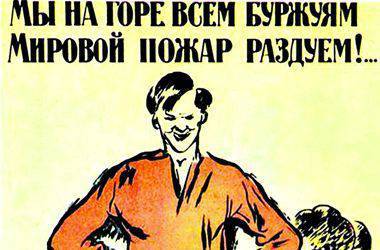
There are two points of view about the turning epochs. One Chinese: “God forbid you live during a change!” The other is Russian, expressed by the poet Tyutchev: “Blessed is he who visited this world in his fateful moments. He was called omnipotent, like an interlocutor for a feast! ”Both of them have the same right to exist as the famous statements:“ The glass is half full ”and“ The glass is half empty ”. The same glass. The same amount of fluid in it. And two completely different opinions! The thing is how to relate to reality. As they say, to whom the war, to whom - the mother is native.
Someone determines fate in an era solid, like the golden ruble. And someone - in the Hundred Years War. Or in the Tatar-Mongol yoke. So they live in them, not even knowing that they are so called. After all, the name of the era will come up with historians - then, when it ends, after many, many years, but people need to live! In something to dress, something to eat, somewhere to sleep, somehow multiply ... And they manage to do it, no matter what time.
Is it hard today? But how! Hryvnia falls - I think, in revolutionary enthusiasm, it will fall to twenty for a dollar. On Khreshchatyk, instead of the standard of living, radish has grown. The real estate market in stagnation - an apartment neither buy nor sell. From everywhere news one is worse than the other - don’t even watch TV, don’t read the newspaper. One frustration!
Imagine a person born in, say, 1897. I saw the light of God under the royal regime. I went to the gymnasium if I was lucky. I lost my mother in early childhood. He was brought up with his brother aunt. I managed to take part in the First World War, not knowing, by the way, that she was the First. Sticking to the Great October Revolution, not suspecting that it was Great - for a long time even the Bolsheviks called it the October Revolution. Served in whites. Captured to red. He was nearly shot by the Odessa Cheka. I almost died of starvation in 1920. He became a Soviet man, he learned that there is no God - and even, perhaps, he believed in it or pretended to believe it. In spite of everything, he achieved success and fame. Once survived during the repression of 1937 — 1939, he again found himself in a war — already Great Patriotic. Lost her brother, who crashed on a bomber. He drank a lot, got stuck, became even more famous, and even became a major Soviet cultural official. And he died safely in the 1986 year, nearly reaching ninety years old.
Fantasy? No, not fiction. This is the biography of our countryman from Odessa, Valentina Kataev, a descendant of the Poltava Cossacks by his mother, and a Vyatka archpriest after his father. The famous writer - the author "Lone White Sail" and "My Diamond Crown". Why is he so lucky, no one knows. Ancestors - priests and nobles, grandfather Bachey - Tsarist general, conqueror of the Caucasus. The bomb was killed, gassed, and he survived against all odds, and even in an era of complete socialist realism in literature (the only “true” in Brezhnev's time!) Came up with his own literary movement - movism.
And here's another biography. He was lucky to be born in an intelligent family in one of the most brilliant eras of French history - the time of Louis XIV nicknamed King of the Sun. His whole life fell at the time of such a STABILITY, which France did not know either before or after, and, probably, would never know. The king, under whom our character lived, ruled longer than any other monarch in European history - as much as seventy-two years! He came to the throne at the age of five and died at seventy-seven. All the wars that France had waged under him (and she constantly fought - with the Spaniards, now with the Dutch, now with the British and the Austrians), ended only in victories. Built Versailles. Created a fleet, equally competed with the British. They surrounded the country with a chain of powerful fortresses. They developed classical French literature, which is simply impossible to read because of dullness, except for Moliere. So far from that era remained palaces, statues and tons of memoirs.
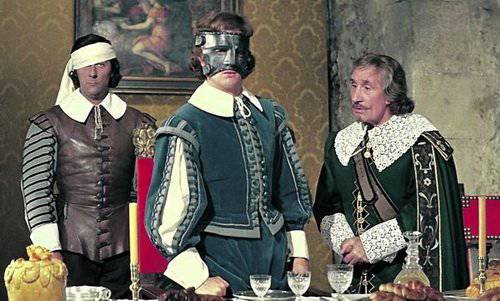
Only our hero is not concerned. While Louis perfected his absolutist state with its effectiveness and brilliance, our hero was in prison. They brought him food, changed his laundry, took him out for walks, and very well watched. He died in 1703 in the Bastille, before the death of his Sun King for twelve years. And even the name of this person is unknown. The only nickname is the Iron Mask.
Who he was, for which he was put, will never be able to install. But what kind of life is stable! And he did not sit in Siberia, but in France - in the very heart of Europe, in the most beautiful possible country on earth!
However, not everyone is as lucky as the Iron Mask. Yes, and "lucky" whether - another question.
Like most people, I do not like change. You can call me a philistine. You may even be surprised at such a confession, but this is a fact that I am not going to hide. Change scares. They hit you in the gut at the most inopportune moment. You built something, adapted to something. Get used to it. And then someone wanted to change something globally - a revolution, a crisis, a bedlam ... Where would the poor peasant go?
And yet, something inexplicable is constantly pushing humanity to revolutionary change. Scientists call such moments bifurcation points. From the Latin bifurcus - split. At some point, society comes to a state where it can no longer be in the same capacity. Tops - can not, bottoms - do not want. Someone has reached the so-called "glass ceiling" and beats his head on the crossbar. Someone no longer knows what to want next. General irritation, nervousness. The loss of the joy of life. And then there comes a nervous breakdown, which we call a revolution. Outbreak of rabies, aggression. At such times, political elites need to prove their worth or to introduce new members into their ranks, to feed on new energy, as if rising from the ground.
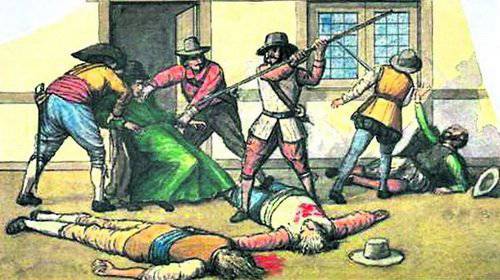
Rarely when there is a complete change of elites. Most often, the new ruling stratum resulting from the revolution is the result of a compromise between the old and the new world. For the same France, the XVI century, in contrast to the era of the Sun King, was a time of protracted bifurcation. There were plenty of hot people in the country. A single nation did not exist. The north of the country supported the ruling dynasty of Valois and Catholicism. South - gaining the power of the Bourbons and Protestantism. Catholics believed that the Bible can be interpreted only by experts - priests. Protestants - that every person has this right. The first were for an expensive church - with statues and rich decor. And the second - for cheap, without images of deities and golden tsatsek.
Behind the theological problems, in fact, hid an economic conflict. The Catholic North, led by Paris, once conquered the South and “cleared” it by collecting taxes. He was satisfied with the status quo. But the South no longer wanted to pay - the mess and ruin suited him more than the "stability" in the far North, paid for by the empty pocket of the southerners.
Catholics were much more numerous Protestants. But the Protestants had much more money and, therefore, soldiers who they could hire by refusing to pay taxes to the central government. Religious wars continued from 1562 to 1598 year. Thirty six years old! Despite the fighting that broke out now and then, the country sowed, plowed, traded, produced not only weapon, but also clothes, shoes, built and renovated houses. Oddly enough, the whole of France was not even interested in much of France. The war was behind key centers. Then the Catholics will lay siege to La Rochelle, which is the main port of the kingdom and at the same time the main center of Protestantism, then the Protestants will gain strength and will impose Paris.
No one could answer, is there still France or has it collapsed completely? Nevertheless, it was during this terrible time that the school of a wonderful French portrait was formed and the great philosopher Montaigne worked. Everyone acquired a sword and a musket. Cities were locked at night. Nobody even dreamed of demolishing defensive walls. The door is thicker. The key is more complex. To travel - only in the company of friends armed to the teeth. But the books were read. Stray theatrical corpses staged comedies - somehow I didn’t want to watch another repertoire. Statues of nymphs and goddesses continued to sculpt. The monument to the era remained two books of her contemporary Pierre de Brant. One is called “The Lives of Famous Captains” - after all, this is military time! And the other - "Lives of famous ladies."
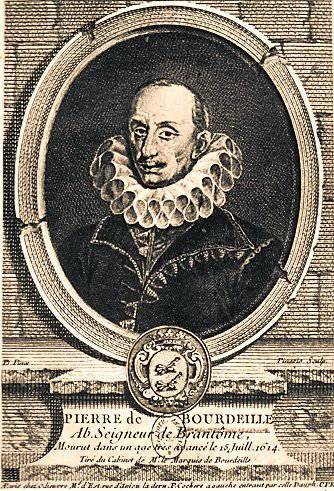
Despite the difficulties of the hectic life of a protracted transitional period, the titles of Brantom’s chapters speak for themselves: “On the charms of a beautiful leg and the virtues that this leg possesses” and “On married ladies, widows and girls, and which are hotter than others in of love. " I almost forgot: Brant warrior Brant wrote both works due to an accident - he fell off his horse and spent several years in bed doing literary exercises due to his temporary inability to physical exercises. Then he got stronger, got up and started on the old. He successfully survived the epoch of religious wars, having reached the age of nehily for all men for seventy-four years. The very squabble of the northern and southern French ended in a compromise - Paris recognized the Protestant king, who replaced religion on this occasion, and all of his former co-religionists received the broadest autonomy and the right to profess anything they wanted. The tax pressure of the new central government, made up of surviving Catholics and Protestants, naturally reduced. The merry times of the “good king Henry IV” came, walking in a darned outfit and chasing good ladies even in the seventh top ten.
In the essay "Kiev City", Mikhail Bulgakov counted FOURTEEN (!) Of the Kiev coups that fell to the lot of the citizens in just three years of revolution. Think about it: fourteen! See how lucky a man is! And we have only two in the last ten years. Although, who knows how to go on?
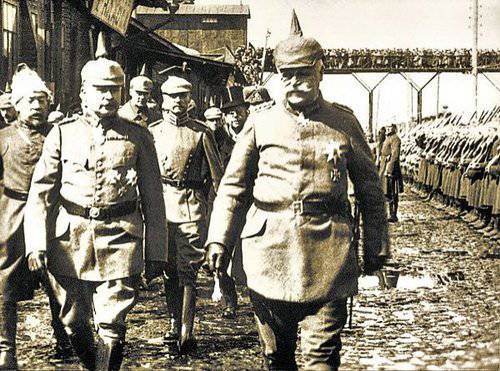
Pensions were not paid at all. Banks, however, worked. But with long breaks. In Tripoli sat Ataman Green. Ataman Kozyr-Zirka visited Kurenivka. The Provisional Government, the Central Rada, the Reds Muravyova, the Germans (and again the Rada), Hetman Skoropadsky, Petlyura, again the Reds, Petlyura the second time, the whites, after them the Reds back, the Poles and Petlyura the third time, the Reds ... "It was not only the Greeks ", - argued Bulgakov. What was not - that was not. At that time, the Greeks made Odessa happy with their invasion. Together with the French.
To those who are now falling into despair, I’m ready to recall the words of the great Karamzin: “In a sense, history is the holy book of nations: the main, necessary; the mirror of their being and activity; tablet of revelations and rules; the covenant of ancestors to posterity; addition, explanation of the present and an example of the future.
Rulers, Legislators act according to the instructions of History and look at its sheets as navigators on the drawings of the seas. Human wisdom has a need for experience, and life is short-lived. One should know how the rebellious passions agitated civil society and in what ways the beneficent power of the mind curbed their vigorous striving to establish order, agree upon the benefits of the people and bestow upon them all possible happiness on earth.
But the ordinary citizen must read the History. She reconciles him with the imperfection of the visible order of things, as with an ordinary phenomenon in all ages; he comforts in state disasters, testifying that there have been similar before, there have been more terrible, and the State has not been destroyed; it feeds the moral sense and with its righteous judgment disposes the soul to justice, which affirms our good and the consent of society. ”
What is there to add? And who am I to add something to the great Karamzin?
Information